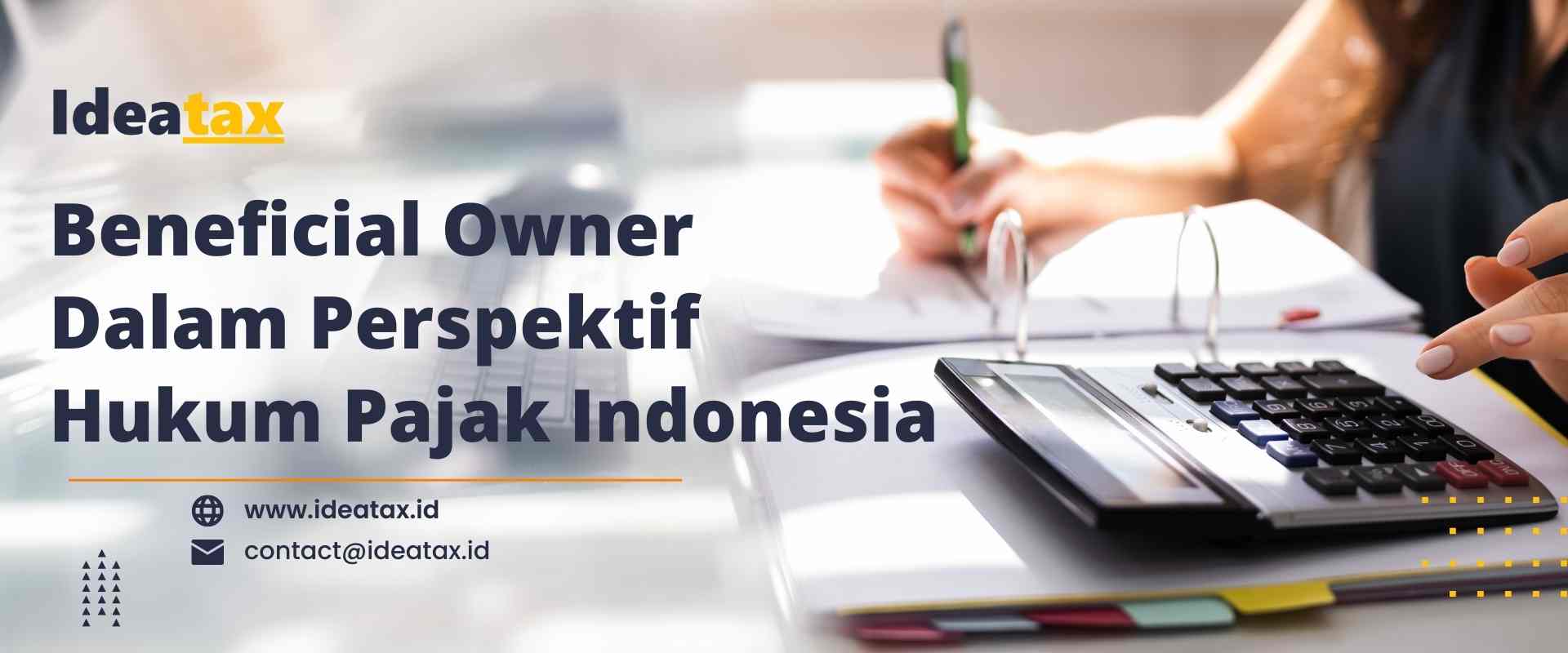Hello, is there anything we can help?

Jakarta, Ideatax -- The concept of Beneficial Owner has been basically recognized since decades ago. Through the 1977 tax treaty model, the OECD introduced the concept of Beneficial Owner in the regulations on interest and royalties. Although the regulation on Beneficial Owner cannot be found in the body of the Tax Treaty Model, it can be found in Commentary Articles 10, 11 and 12 which discuss dividends, interest and royalties.
Commentary Article 10 Paragraph 1 Model Tax Convention on Income And On Capital: Condensed Version 2017, among others, states that "paragraph 1 explicitly states that dividends are taxable in the country of the beneficiary's residence" (OECD, 2017). Furthermore, in commentary articles 11 and 12, we can implicitly find that agents and nominees are not beneficial owners.
There are several definitions of Beneficial Owner conveyed by experts. Vogel, for instance, defines Beneficial Owner as someone who can freely determine whether capital or assets can be used by oneself or used by other parties and determine how profits will be allocated (ITR, 2017).
According to Bladel (2012), the Beneficial Owner concept was introduced by the OECD to eliminate double taxation of structured transactions. Furthermore, Bladel (2012) states that only a few countries have defined the concept of Beneficial Owner in their domestic regulations, including Indonesia. In fact, Li (2012) conveyed that the term Beneficial Owner has a specific meaning in each country and requires special interpretation. Thus, what and how is the concept of Beneficial Owner in Indonesian tax law? In this article, we will discuss this topic in detail.
In line with Bladel and Li's opinion, the definition of Beneficial Owner is not explicitly mentioned in Indonesia's domestic provisions. Article 26 paragraph 1a of Law Number 7 of 1983 concerning Income Tax as amended by Law Number 7 of 2021 concerning Harmonization of Tax Regulations. According to the regulation, among others, it is stated that the domicile country of a foreign taxpayer running a business or conducting business activities through a permanent establishment in Indonesia is the country of residence or domicile of the foreign taxpayer that actually receives benefits from the income (Beneficial Owner). Thus, the country of domicile is not only determined based on the domicile certificate issued, but also the residence or domicile of the beneficiary of the income.
Furthermore, the provision on Beneficial Owner can be found in the Regulation of Director General of Taxes Number PER-62/PJ./2009 concerning Prevention of Abuse of Double Tax Avoidance Agreement as last amended by the Regulation of Director General of Taxes Number PER-25/PJ./2018 concerning Procedures for Implementation of Double Tax Avoidance Agreement. In general, the regulation specifies that foreign taxpayers who receive or obtain income from Indonesia can receive tax treaty benefits, one of which is if the foreign taxpayer is the Beneficial Owner or the actual beneficial owner of an economic transaction.
The provision also regulates that a taxpayer meets the criteria as a Beneficial Owner if: first, the individual foreign taxpayer does not act as an agent or nominee. Second, the corporate taxpayer does not act as an agent, nominee or conduit. Third, the corporate taxpayer has control to use or enjoy funds, assets or rights that generate income in Indonesia. Fourth, the taxpayer's income which is used to fulfil obligations to other parties is less than 50%. Fifth, corporate taxpayers bear the risk of assets, capital and liabilities owned. Sixth, the corporate taxpayer has no written or unwritten obligation to forward part or all of the income received to other parties.
To prove the existence of a Beneficial Owner, Director General of Taxes Regulation Number 25 of 2018 has regulated that foreign taxpayers can declare it in a Domicile Certificate (SKD) using the DGT form and signed by the competent authority of the country concerned.
A more accurate definition of Beneficial Owner can be found in Circular Letter of Director General of Taxes Number 03/PJ.03/2008 concerning Determination of Beneficial Owner Status as Meant in the Agreement on Avoidance of Double Taxation Between Indonesia and Partner Countries. The provision regulates that the Beneficial Owner is the actual owner of income in the form of dividends, interest and or royalties who is fully entitled to directly enjoy the benefits of such income.
That is, if the beneficiary of income in the form of dividends, interest and or royalties is not the Beneficial Owner, then in accordance with the provisions of the P3B, the source country may impose tax in accordance with the provisions of the applicable laws and regulations. This is a brief explanation of the beneficial owner. If you need further explanation, Ideatax will be glad to assist you.
Related Regulations
-
Law No. 7 of 1983 concerning Income Tax as amended by Law No. 7 of 2021 concerning Harmonization of Tax Regulations
-
Director General of Taxes Regulation Number PER-62/PJ./2009 concerning Prevention of Abuse of Double Tax Avoidance Agreements as amended lastly by Director General of Taxes Regulation Number PER-25/PJ./2018 concerning Procedures for Implementing Double Tax Avoidance Agreements
-
Circular Letter of Director General of Taxes Number 03/PJ.03/2008 concerning Determination of Beneficial Owner Status as Meant in the Agreement on Avoidance of Double Taxation Between Indonesia and Partner Countries
References
Bladel, M. v. (2012). Beneficial Ownership in the OECD model tax treaty. Paris: OECD.
ITR. (2017, August 16). Switzerland: The concept of beneficial ownership in double tax treaties in the context of financial transactions . Retrieved from International Tax Review: https://www.internationaltaxreview.com/article/2a68zn8rhbi1n8z467oxs/switzerland-the-concept-of-beneficial-ownership-in-double-tax-treaties-in-the-context-of-financial-transactions
Li, J. (2012). Beneficial Ownership in Tax Treaty: Judicial Interpretation and the Case for Clarity. Comparative Research in Law and Political Economy, 187-209.
OECD. (2017). Model Tax Convention on Income and on Capital: Condensed version. Paris: OECD.

